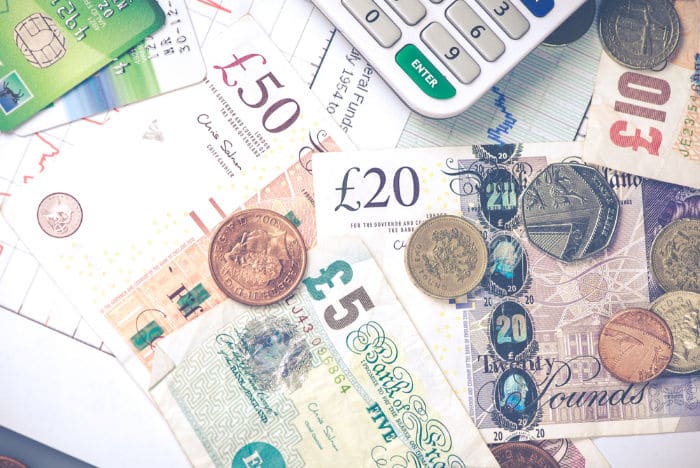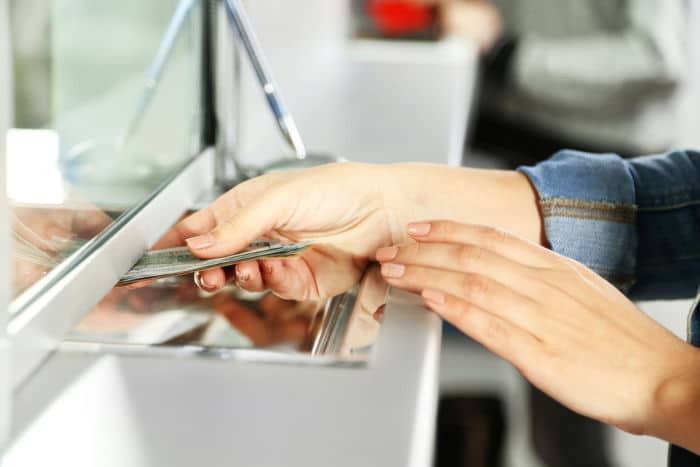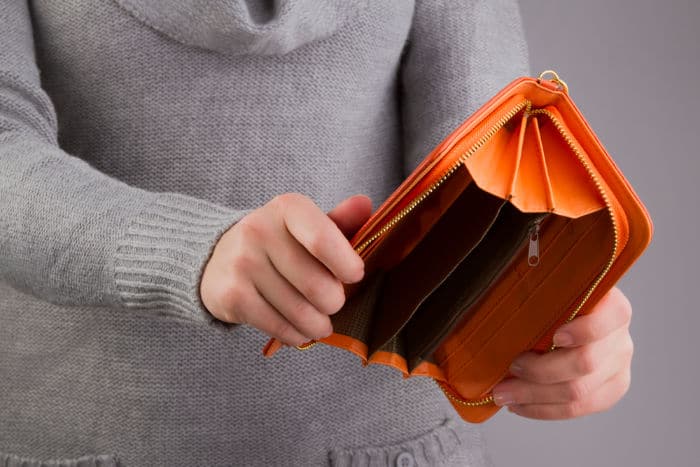An emergency fund is easy to start and can save you from an unexpected crisis. Here’s everything you need to know to start saving for a rainy day.

£10 BONUS OFFER: Earn easy cash by watching videos, playing games, and entering surveys.
Get a £10 sign up bonus when you join today.
What is an emergency fund?
If something unexpected were to happen, where would you get the money from to sort it?
Think about things like how you’d cope financially if…
- you lost your job
- your boiler packed up in the middle of winter
- you needed a [something expensive, plus labour and VAT] to pass your car’s MOT
- your pet needed surgery and your insurance won’t cover it
- your landlord serves notice on your home and you need 6 weeks rent upfront and moving van costs
- a family member gets sick, and you need to take extended time off work to care for them
- interest rate increases pushes up the cost of your mortgage
How would you pay for it all? How could you keep going?
Having an emergency fund gives you a safety net to help pay for whatever happens when you need money at short notice, and means you don’t need to turn to credit cards or loans to see you through.
Any money saved is not for planned purchases – you’d need a sinking fund for that.
Do you need emergency savings?
I’ll make this short – yes!
Yes, you need to have an emergency fund.
If you don’t have easily accessible cash if an emergency happens, it will end up costing you more as you’ll need to borrow money and have to pay interest too.
You may be thinking you’re invincible, that everything is going to plan and you don’t need a savings buffer today. However, situations can change overnight, and it’s better to be safe than sorry.
Even if you have insurance to cover some emergencies, they likely won’t pay out to cover all circumstances.
But don’t worry, it’s easy to get started.
How do you start an emergency fund?
It may seem daunting to start saving if you’re not used to doing it before, but it’s easy enough to get your savings going.
Save little and often
See how much wiggle room you’ve got in your budget, and then set aside a portion of it as soon as you’ve been paid.
Setting up a standing order for the money will mean you don’t need to worry about it each pay day, and the money will be gone from your account before you see it’s even there.
Don’t worry, though – you won’t need to save this amount forever. Once you’ve saved enough, you can stop (or maybe even continue saving into a higher interest account for your future).
It’s also worth remembering that if you use the emergency fund for any reason, you will need to save again to give yourself that cushion back. So, staying in the habit of saving could be really useful.
Use an app
If you struggle to save each month, then why not use an app to help. An app like Chip cleverly works out small amounts to save once a week, without you even noticing.
Read our full Chip app review here.
Add any random money
Had a tax rebate or refund? Perhaps you had a bonus at work? Maybe you cleared a debt and have spare money in the budget? Got some birthday cash from a twice-removed Great Aunt?
It’s great getting extra money, but instead of splashing the cash, consider adding a lump sum straight into your emergency fund.
This will help build your savings much faster.
Help to Save
The government offers a Help to Save savings account which gives you a 50% bonus on top of what you save!!
That’s MASSIVE! (Oh, and it’s tax-free!)
So, if you’re saving for something like an emergency fund, it would mean you wouldn’t need to save as much of your own money.
Take a look at more details and how you can set up a Help to Save account.
1p at a time
Literally, saving anything is a start – even a penny.
Start saving using the Skint Dad 1p Saving Challenge and you can save over £650 in a year.
This will really get you started on your safety net.
How much money should you have in an emergency fund?
The amount of money YOU need to save in an emergency fund is going to be totally different from what WE need to save, or even what the person who lives next door to you needs.
The question you need to be asking is how many months should you have in an emergency fund.
You should start with an emergency fund that can cover at least three months of your expenses, which is why it’s different for everyone.
Grab your budget, and you can work it out quickly. Add up your mortgage/rent, council tax, utilities, any insurance, food, and anything else you need to pay out. Then, multiply this figure by three, and this is what you should aim for.
I know – it sounds like a lot!
Bite sized savings
If you’ve not got much in the way of savings at the moment (some 16 million people in the UK have savings of less than £100, according to the Money and Pensions Service, so you’re not on your own), even thinking about getting three months worth of expenses will sound huge!
To make it more achievable, look to break it into bite size savings amounts.
Say you need to save £6,000 (if that’s 3 months’ worth of bills for you).
Divide up your total by, say, 100 – doing this means you’ll only need to save £60 (100 times) to reach your overall target.
Having small, bite sized savings targets will keep you motivated to save more and can make saving feel more achievable.
Even being able to save a smaller amount will at least give you something to help if an emergency happens.
Do you need more?
Depending on what you read, some may say you need three months of emergency savings, and other people may suggest you need six months.
I always think it’s useful to think about the kind of job you’ve got and how easy it would be to get another one if you were made redundant or the company shut down suddenly.
If you think it’d be easy to get a new job, then perhaps save less. However, if the job market is really competitive and you’re looking for a niche role, then you may be out of work longer, so it’s best to save more.
However, if you have any insurance, for example, income protection to cover your bills if you’re unable to work, then you may want to factor that in and not save as much as you’ve already got an element of cover.
Where should I put my emergency savings?
If you search for an account to save your emergency fund, then you likely won’t come up with many well-known banks.
Most banks, building societies or credit unions don’t necessarily label their savings accounts as “emergency funds”. However, that doesn’t matter.
What you need is a bog standard savings account – and here’s why.
You need to be able to have quick and easy access to your money – to sort out whatever has happened that’s unexpected smoothly and with no hiccups.
This may mean you lose out on much higher interest you get with some savings accounts, but they usually make you lock your money away for a set time and potentially charge you to withdraw your money early.
However, what I don’t suggest (unless you have a lot of self-control and can stop yourself from booking a last-minute, well-deserved, bargain holiday) is saving your money in an account that’s linked to your main current account.
If you log onto your online banking and see money sitting there, do you think you’ll be tempted to spend it?
So, this is where out of sight, out of mind may come in handy. Look to open a savings account with another bank. Or, perhaps, look to open an account with a local credit union, as their savings rates aren’t too shabby.
Emergency fund benefits
Having an emergency fund is not just about having money saved away, but it has more benefits.
Removes stress and worry (and arguments!)
When we were really skint (and I mean proper skint, skint), worrying about money was like a full time job!
We never used to have any savings, so when things went wrong, it meant we had a blind panic trying to find money to sort out the issue, try to extend the overdraft again, or even get a payday loan.
With money in an emergency fund, the constant worry in the pit of your stomach goes away as your savings act as a safety blanket, giving you peace of mind.
It saves you money
Having a little money squirrelled away means that you don’t need to get further into debt should something unexpected happen.
With quick access to your own money in a savings account, you won’t need to borrow money at high interest, which saves you money in the long run.
Helps prevent bad debt
Without emergency savings, turning to credit cards or loans could be your only option.
The trouble is, you’ll get trapped in a cycle.
So you pay for an unexpected expense on a credit card, upping your monthly repayments. This means you’ve got less money to save in an emergency fund, and when something goes wrong in the future, you’ve not been able to save again, so you’ll need to get into further debt.
Break the cycle before it starts, and begin to save sooner rather than later.
What if you’re in debt?
Having an emergency fund is there to help you not get into debt. However, if you already owe money, you need to balance whether to save or pay debt.
The interest you’re paying on debt will likely be much higher than any savings rate, so why have money sitting there doing nothing?
So, maybe it makes sense to raid your savings to clear your debt?
But what happens if an emergency occurs right afterwards?
You’ll have no spare cash saved, so will need to spend on credit again.
Some financial experts, therefore, suggest saving a smaller amount of £1,000 as an emergency buffer (instead of 3 months of expenses) if you’re paying off debt.
Once you’ve saved £1,000, work to pay off and clear high-interest debt, then work towards a larger emergency fund.
Skint? How to free up money to build your savings buffer faster
If you don’t think you’ve got much spare in your budget to save, there are a few things you can do to free up money to get to your target faster.
Cut costs
You may be able to cut money from your outgoings with minimal effort.
- Is there a subscription box you signed up for that you don’t use? Cancel it and save.
- Don’t auto-renew your insurance. Compare and save.
- When was the last time you changed energy providers? Switch and save.
Even just a couple of things could free up hundreds of pounds a year from your budget, without changing your lifestyle.
However, you can also look to cut down on random spending. Keep a spending diary to see where your money is getting sucked away each month, get over the shock, and then you’ll be able to see how to bring your budget to a healthier level.
Any savings can go straight into your emergency fund.
Sell stuff
Use saving for an emergency fund as a way to have a clear out. You’ll be surprised how much stuff you’ve got lying around the home that you probably haven’t used for over a year!
Check these guides out:
Make more
Once you’ve cut back all you can, the next step is to increase your income.
Perhaps see if you can get a raise at work? Could overtime be an option? What about a part time job on the side?
Alternatively, you could start a small business at the weekends? If you don’t have a lot of time, then why not look to complete paid surveys for cash instead, which you can easily do while watching TV in the evenings.
Any extra money could get put straight into your savings, which will see you hit your target much faster.
Need emergency money now?
If you’re already in an emergency, but you’ve not been able to save, please don’t panic yet.
You may able to able to get a Budgeting Loan, which is an interest-free loan (depending on your circumstances).
Please take a look here about what to do if you’ve got no money for food for details about how to get help and things you can do.
Come and join thousands of other savvy savers in the Skint Dad Community Group on Facebook to share tips and tricks to save money on everyday living, and get the motivation to keep saving.





